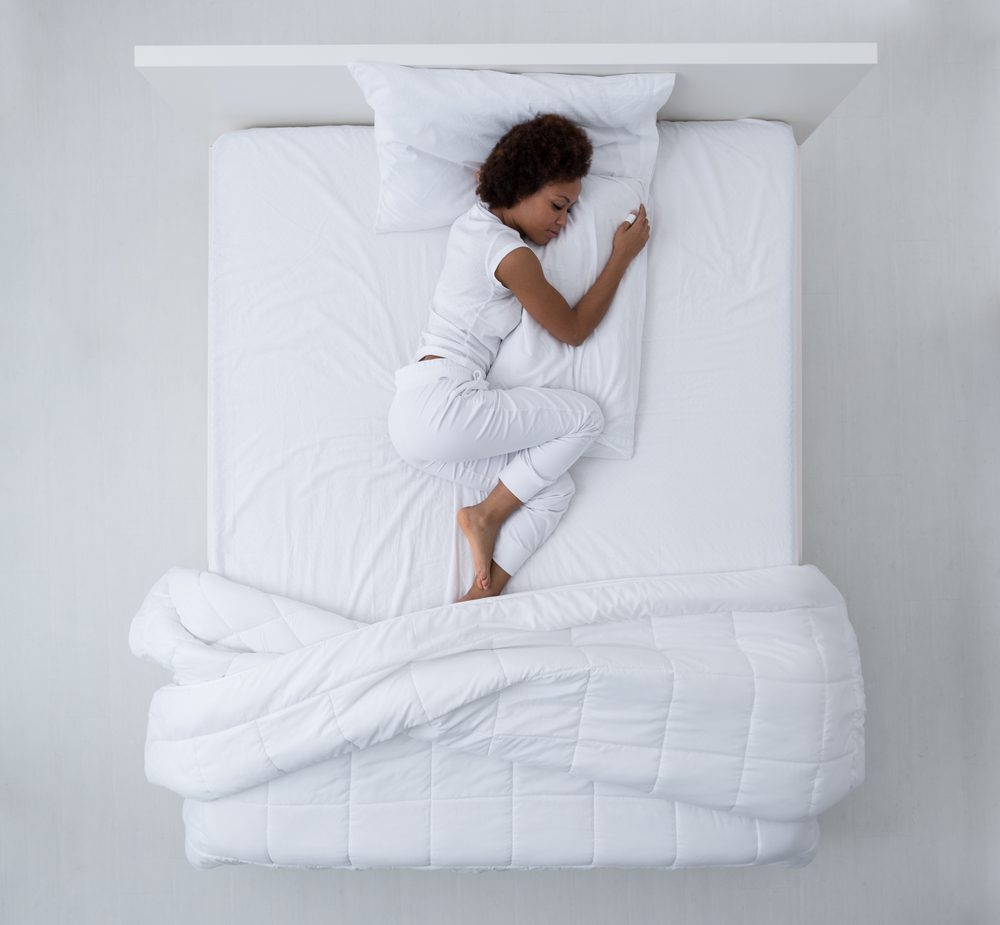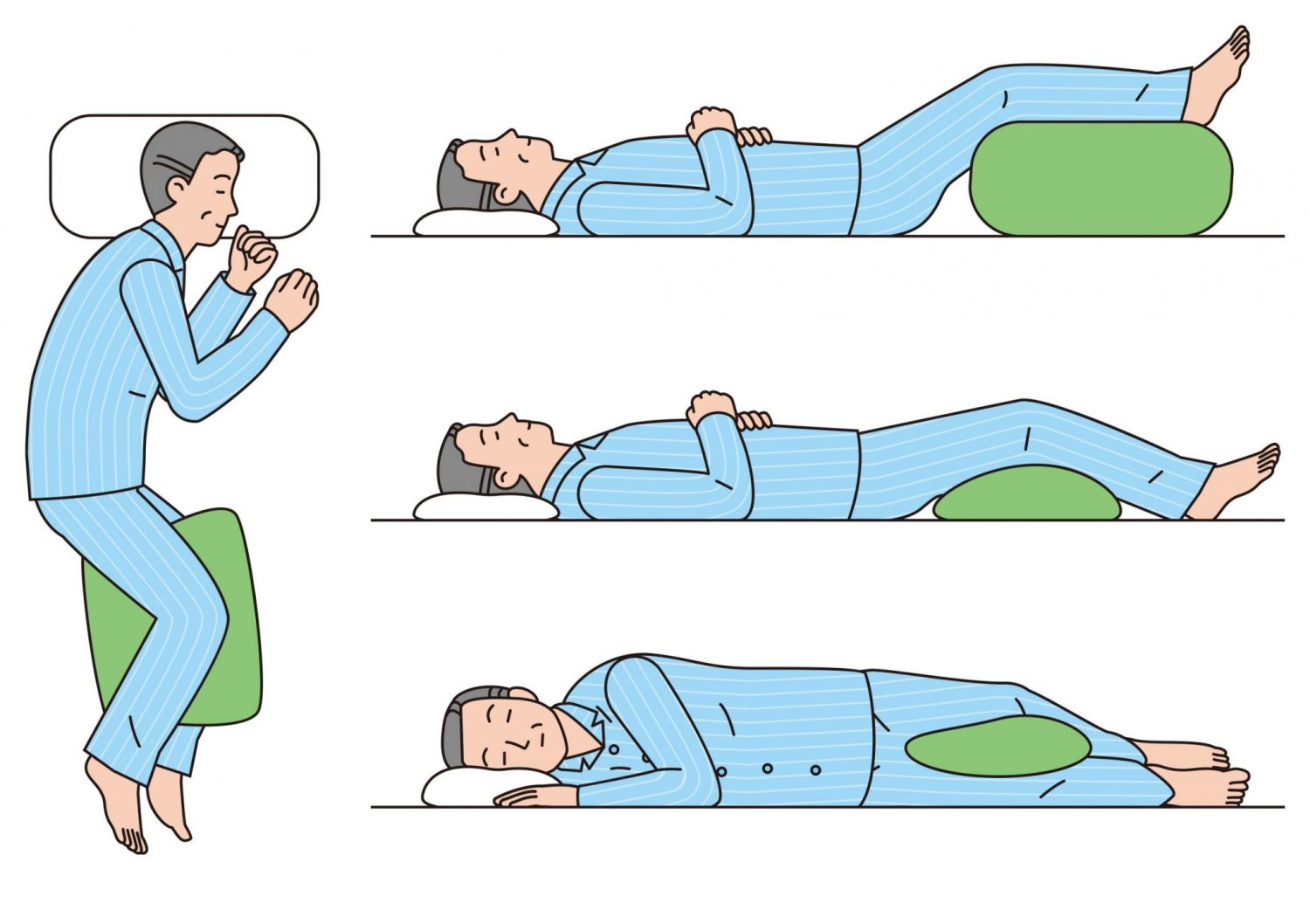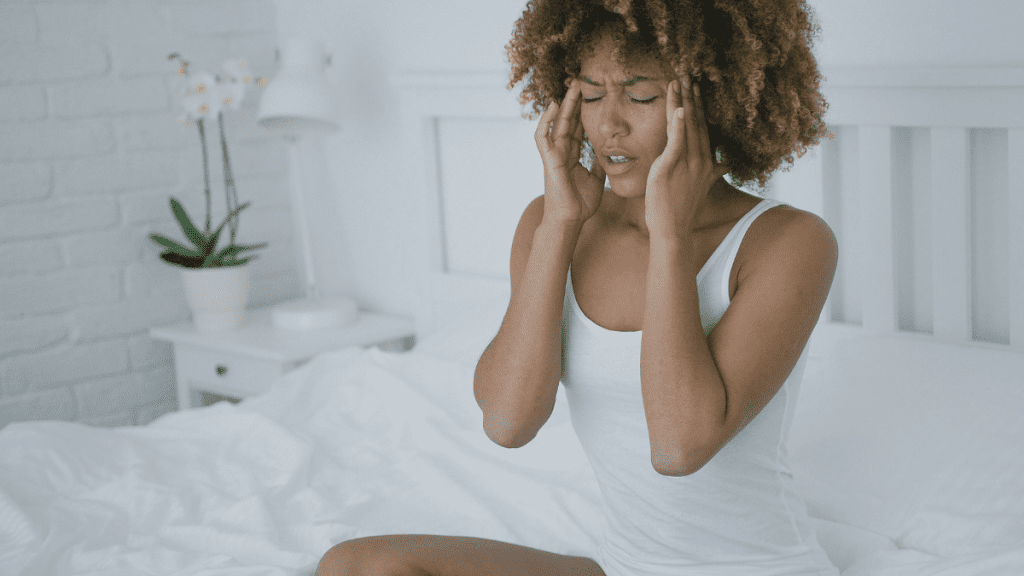
Have you got “painsomnia”? It’s the vicious cycle of your chronic pain causing sleep deprivation and it’s no fun at all! If so, you’re not alone. In fact, a recent study found that 57% of people with rheumatoid arthritis had trouble sleeping because of pain.
Arthritis and Sleep
Let’s start at the beginning. What is rheumatoid arthritis (RA)? Put simply, it causes joint pain because the immune system mistakes the body’s cells for foreign invaders and attacks the tissue lining around a joint. This causes pain, swelling and mobility issues and commonly affects the hands, knees and ankles. It can run in the family and affects women more than men.
Chronic pain and sleep deprivation are a diabolical duo and together they can lead to a range of negative health consequences: both short-term such as fatigue, anxiety, memory loss and physical weakness and if left unchecked, and long-term problems like depression, high blood pressure and increased risk of more severe health conditions.
When we sleep, we generate restorative brain chemicals and growth hormones which repair tiny muscle tears that occur day to day. Without adequate sleep, our bodies struggle to heal and pain symptoms may worsen.
Quick Tips to Improve Your Sleep
Everyone is different and there will be good days and bad days, but there are ways to manage pain for people with RA and eliminate sleep problems at the same time.
- Move your body
We hear it all the time; exercise more. If you’re battling chronic pain, regular exercise can be a daunting prospect but low-impact sports are a great way to feel productive during the day and coax your body into a restful state when it’s time to hit the hay. Try to do a bit every day, whether it’s a 15-minute high intensity workout or a post-dinner walk.

- Get into a routine
Schedule in your sleep time and get into a routine of going to bed at the same time each night. Stay away from caffeinated drinks and blue screens before bed and allow yourself at least eight hours of sleep each night. When you live with an auto-immune illness like rheumatoid arthritis, you may need longer in bed during a flare-up, so get to bed early and give yourself the best chance of getting the rest your body and mind needs.
If your routine fails you and you didn’t get the sleep you needed the night before, there is no shame in having a siesta. Afternoon naps may feel like a guilty pleasure but when you need a kip, you need a kip!
- Set the scene
Your bedroom should be your sanctuary. That means it’s worth putting the effort into getting things like the bedding, temperature and lighting spot on.
If getting to sleep is hard work for you, don’t make things worse for yourself by allowing your alarm clock to blink at you through the night or your bedframe to squeak when you shift in the night. Remember, it’s a sanctuary vibe we are going for here, not a just-make-do scenario.
- Pillow talk
Getting the right pillow for you may take some trial and error but it’s worth it. Even if your pain is down in your knees, compromising your sleep position because of a bad pillow can ricochet throughout your body. You may also find that using your pillows more creatively like under your knees or between your legs could help you get into a comfortable position.

- Invest in your bedding
Of course, your mattress has a huge role to play in your sleep quality and typically they need replacing every seven to eight years. So, if you’re due an upgrade, spend some time trying them out at the store. Also try bedding made from natural fibres like cotton, wool, silk or bamboo which have heat-regulating and breathable properties.
- You’re hot then you’re cold
Speaking of heat-regulating, getting too hot or too cold during the night is a sure-fire way to spoil your slumber. Again, it can require a bit of trial and error to get this right, as you don’t want your joints getting cold and seizing up, but waking up in a hot sweat is nobody’s idea of fun. Try ditching the pyjamas, opening a window and investing in a heated mattress topper – whatever works for you.
- Manage your pain
Seek medical advice and if your doctor deems it appropriate, manage your pain before you go to bed by taking your medication later in the day. If that’s not an option for you, there are a range of topical pain relief options out there. Our all-natural, transdermal active patches can be stuck on before bed and worn overnight to provide long-lasting relief from joint pain.
We now have a trial pack available so you can try out different patch sizes on different body parts to find the best fit.

The Best Sleeping Positions for Rheumatoid Arthritis
Perhaps you get arthritis hip pain while sleeping or you are looking for the best sleeping position for neck arthritis. Aside from getting an adjustable hospital-style bed, you can try these sleeping positions which could help to relieve pain while you get some much-needed rest.

- If you find yourself asking how to sleep with arthritis in your knee, try sleeping on your side while positioning a pillow between your legs to reduce pressure and prevent your knees from rubbing together.
- For back and neck pain, it’s best to try sleeping on a firm mattress, on your side with your knees drawn up towards your chest. This position helps to relieve pressure on the lumbar spine. Try to avoid sleeping on your front, especially if you suffer from neck pain and make sure your pillow position is keeping your spine straight and not over extended.
- If it’s your hip that gives you grief, sleep on the side that doesn’t hurt with a pillow between your legs to support your pelvis.
- How should you sleep with shoulder arthritis? Try lying on the unaffected side while hugging a pillow. If you prefer to sleep on your back, you can try placing a soft pillow under your bad shoulder. Because lying down causes blood to rush to the area, therefore exacerbating swelling and pain, you might try propping yourself up to alleviate this effect.
Time for a Good Night’s Sleep
Does RA affect your sleep? Let us know if you have any particular management techniques that work for you – we would love to share them with our community on Facebook!



